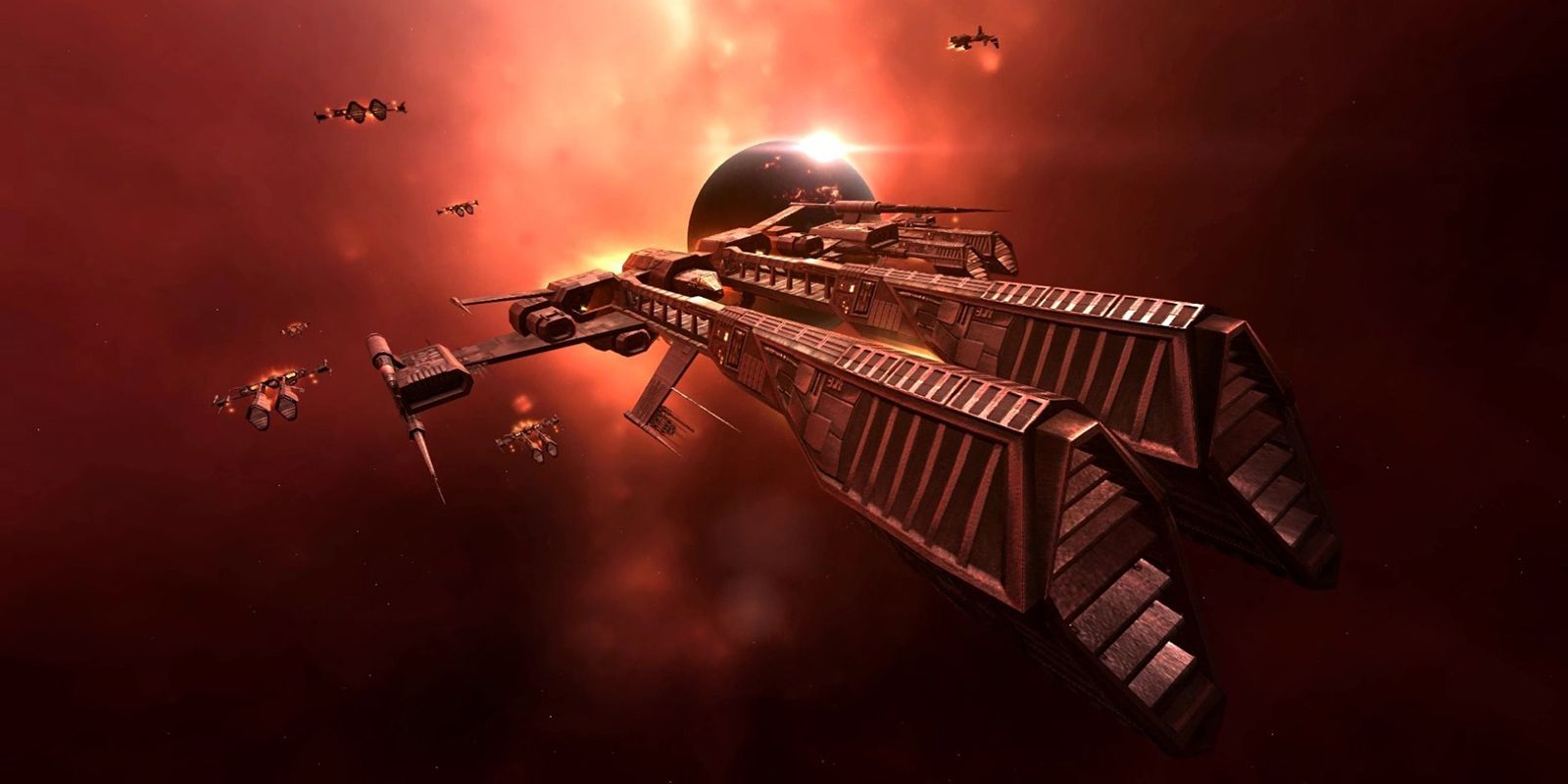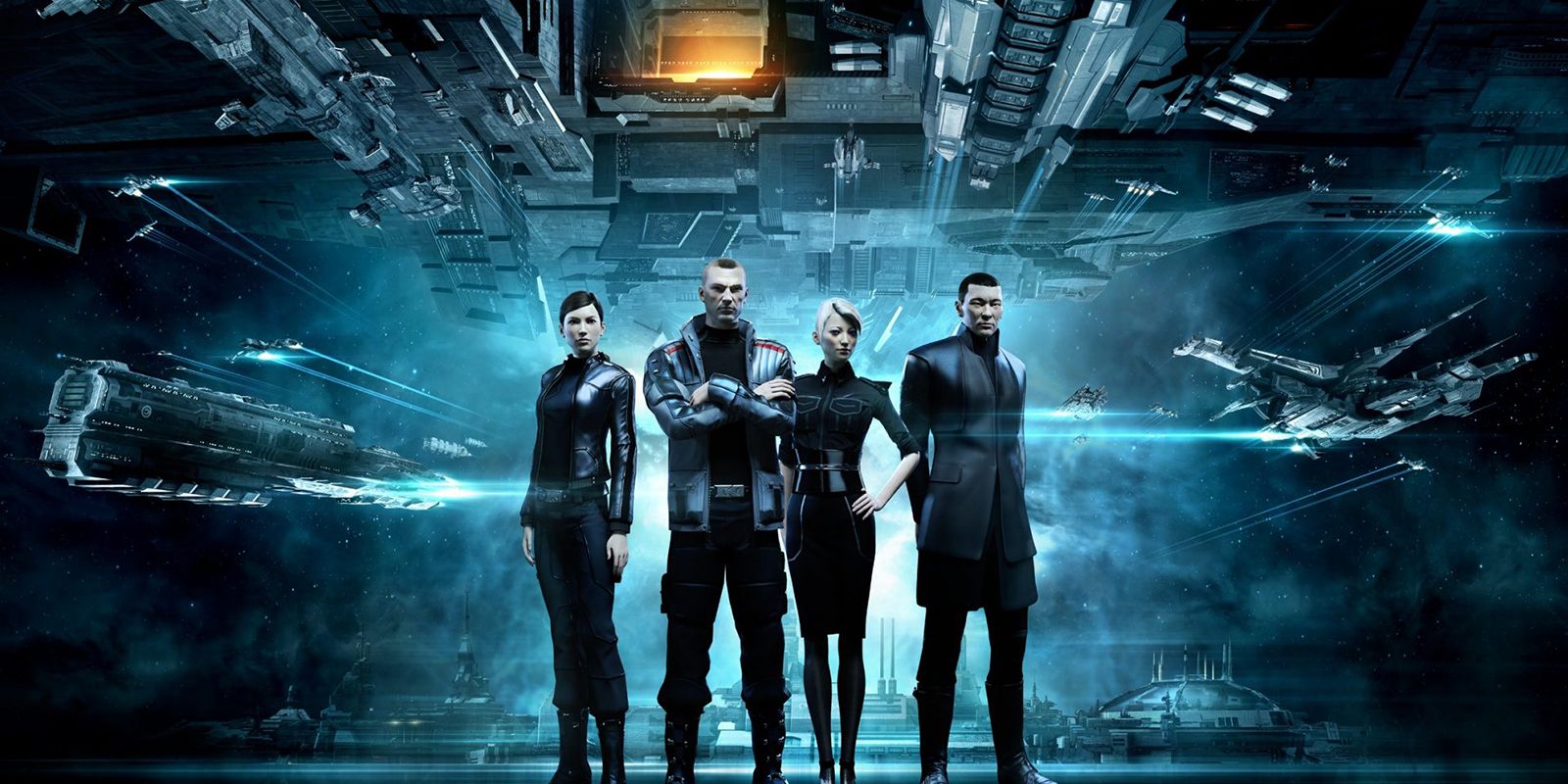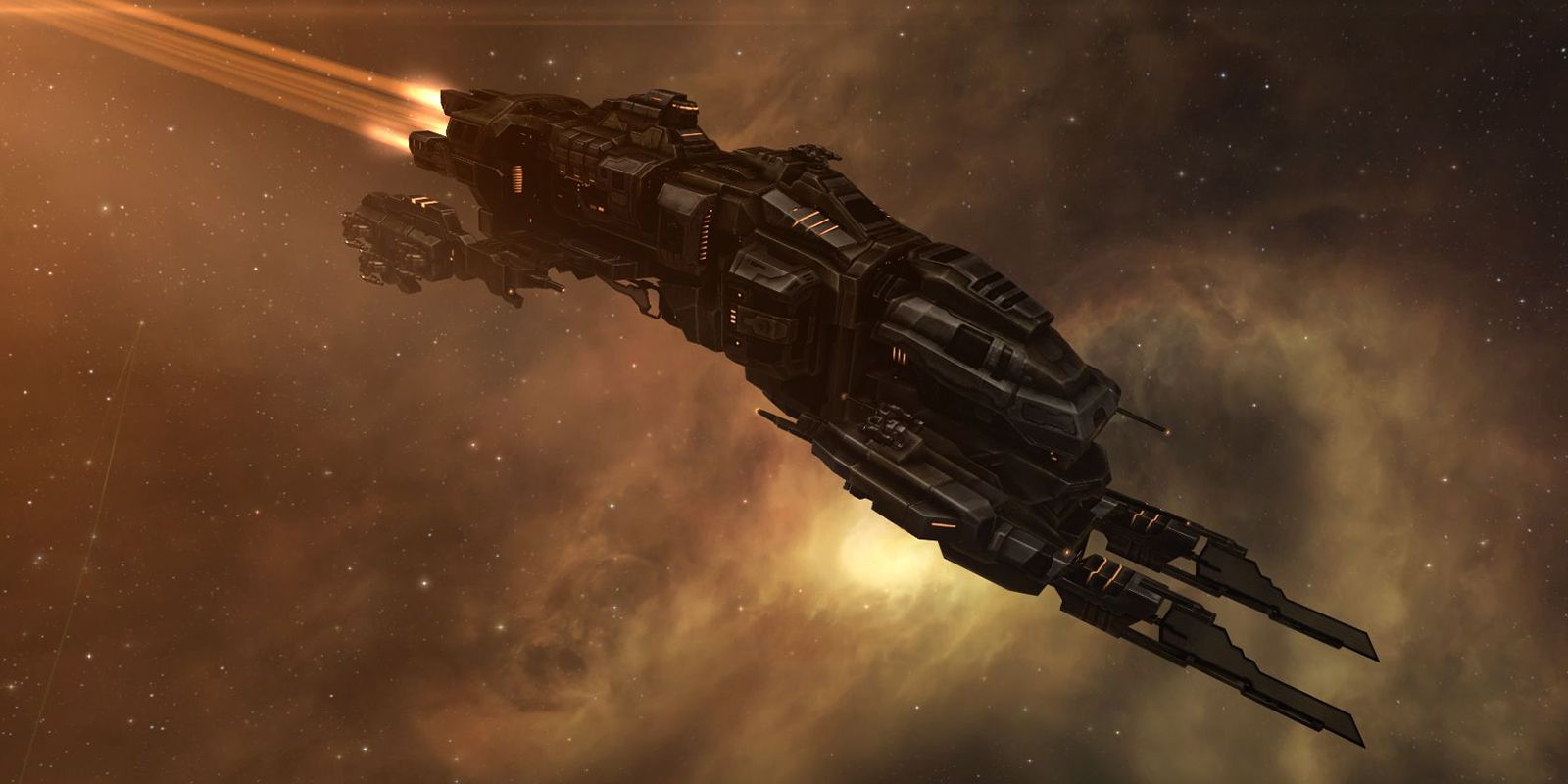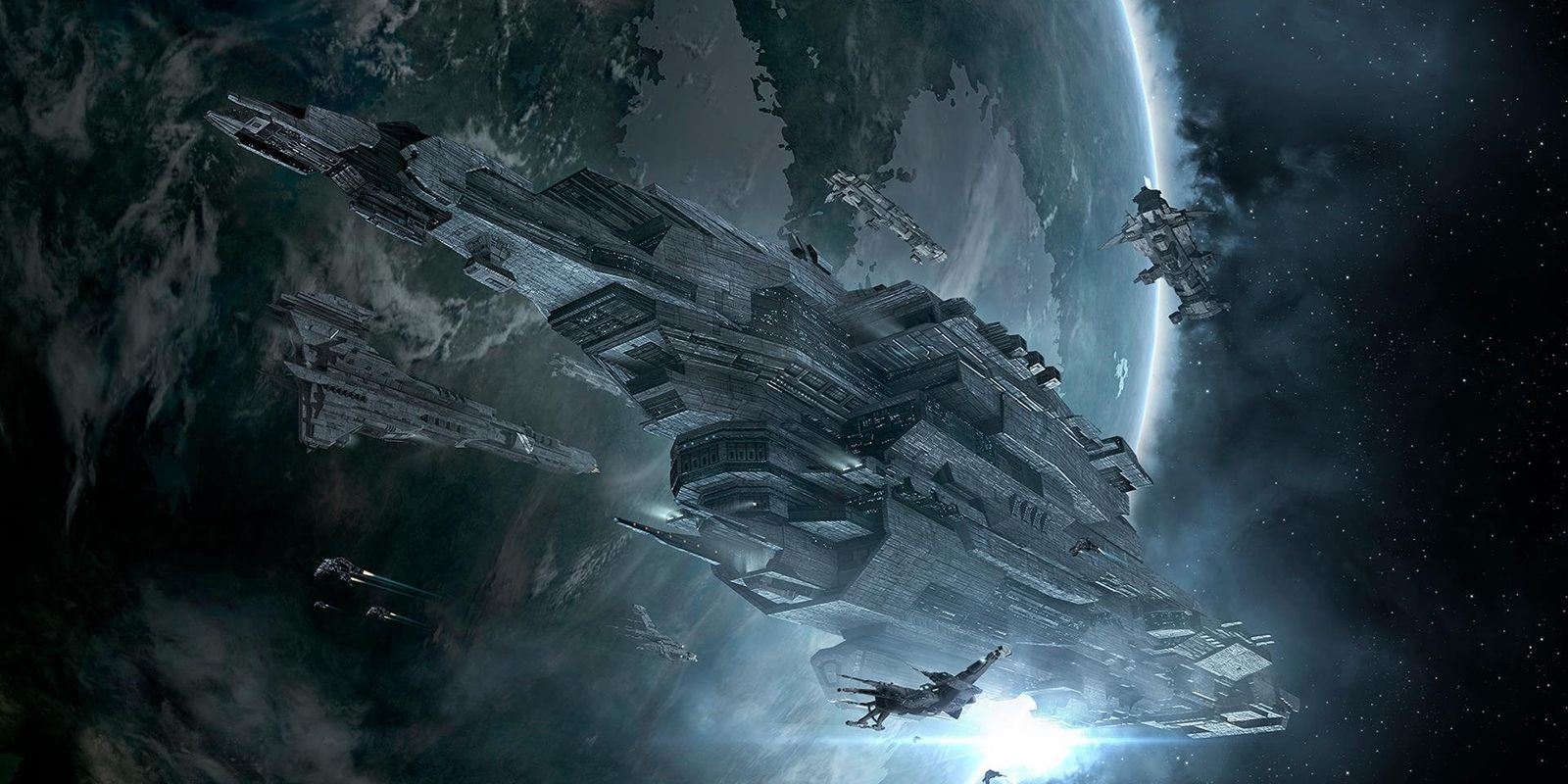Last month, I spoke to former EVE player and current CCP community developer Peter Farrell about EVE Online's record breaking war, and about the unique wartime economy that has sprung up in the galaxy. This month, I caught up with Farrell again, as well as fellow ex-player and current community dev Jessica Kenyon, about a lighter - though similarly intense - subject: the Alliance Tournament. The contest was a staple of EVE for years but has been absent for a little while now, with Farrell and Kenyon acting as the faces behind its revival. It allows different teams to compete in short, structured ways with a variety of rules and limits that make it far more concentrated than the drawn out and rare battles within the war itself. The best way to think of it might be as a medieval jousting tournament held during peacetime, where various houses vie for dominance and bragging rights without needing to kill each other. It's like that, except it's not during peacetime.
"The war itself has actually hit a bit of a stalemate in the last couple months," Kenyon says. "Neither side has been able to make a whole lot of progress against the other. There have been small victories here and there, but we've actually seen a lot of the fighting go outside of the game proper - there's a propaganda war that's happening on places like Reddit and other social media. So they're fighting wherever they can. We're actually hoping that [the tournament] just becomes kind of another proxy war for them to show that they're better than the other side."
It would not be the first time war and sport have combined like this. East Germany beating West Germany at the 1974 World Cup was viewed as a huge victory for the other side of the Iron Curtain, even though the West Germans ultimately won the tournament. Meanwhile, the Miracle on Ice was celebrated as a defeat for Communism itself. Jesse Owens bloodied the nose of Hitler's ideology at Berlin '36. While the Alliance Tournament is not on the magnitude of these iconic sporting moments, sporting competition has a long history of having meaning outside of the result.
Whether in sporting competition, warfare, or general day to day gameplay though, one thing remains consistent - players lining up to tell you your game is broken. As Farrell explains though, as long as another team can break it better, things are never really broken in the Alliance Tournament. "The players are very inventive when it comes to what options are there for them," Farrell says. "You don't want to remain static from year to year because you want to promote variety, so [designing the point system] was one of the most stressful parts of this whole endeavour. Jessica and I were both, at three in the morning like, 'Oh shit, is this actually broken? Did we just come up with something that these players might break?' Because we're giving them months to break this, essentially. And it's not a matter of if they will break it, but how badly will they break it? And will there be someone else who can break it better to beat that broken thing? We're not going on the assumption that it's going to be completely unable to be tweaked outside of our wildest imaginations. We just want to make sure that there are options for every type of play."
In order to prepare for the future, they had to look to the past, Kenyon explains. "We very much went into the standard meta of years past and just kept chopping heads off the Hydra until we weren't sure what the next best head to chop was," she says. "Hopefully [that] will provide more interesting choices to the teams. We removed several of the strongest ships just from the flagship race, but you can still bring them [to other contests]. We use more granular point values this year too. So it used to be that every battleship had the same number of points. But this year, we went and said, 'These particular battleships, there's slightly stronger than their class in this type of format. So we're giving them more points, which means that you have a tighter budget to work with if you want to bring those ships'. And so that helps to mix it up a little bit more, and make some more interesting choices by giving you a little bit more dynamic team building. It's going to be a really good event in terms of a lot of variety."
Like with any sport, despite the tight set of rules, each team interprets the game very differently. Think of the differences in styles between Guardiola, Klopp, Tuchel, Rogers, and Southgate in football - now imagine instead of false nines, high recovery presses, and back fives, it's spaceships blowing each other up. That's what Farrell and Kenyon have to plan for. "Instead of killing all ten, which is what you would expect, in like a ten v ten deathmatch," Farrell says of some of the more unusual tactics, "they will just survive and kill one ship, and just laugh at everyone else. Luckily, I think we've avoided those types of situations, and we've given players a lot of tools, so they can kind of self police as well."
That doesn't mean that Farrell and Kenyon are forcing each team to play in a set way, however. The real joy of these contests is in seeing how teams interpret the meta and the rules very differently. "You'll have some teams that believe that their pilots have the best technical ability on the field," Farrell says. "So they will fly just the same thing over and over again. But they'll fly it better than anyone else. Then you have other teams that are like 'Okay, well, we might not be the best in space, we may not be the best ship pilots, but we've got the best science behind it. So we can come up with ideas that will baffle you, right, so our team comms will be superior. You can fly better than us all you want. But you still won't be able to beat us'.
“And then there's teams that meet somewhere in the middle there. And for the longest time, like there's one of the oldest Alliance torn rivalries was between a team that was really good at theorycrafting and coming up with a composition, but bad individual piloting. And then the team that was obviously pretty good at theorycrafting as well, but they were like number one at the tournament piloting. So they tend to go back and forth and chunk at each other through these tournaments, and there are grudges and styles that hold down through the years. There will be teams where you just see the name of the team, and you know that style. No member of that team played in the same tournament ten years ago, but because they are under that flag, they will fly with the same style that their tournament forefathers did, just because there's a pedigree invested in them. And this is such a long standing event, that knowledge gets passed down even as turnover happens to the point where all of the pilots in the team, even if they're new, all of the old knowledge that it's been gathered by the predecessors, it's been combined."




